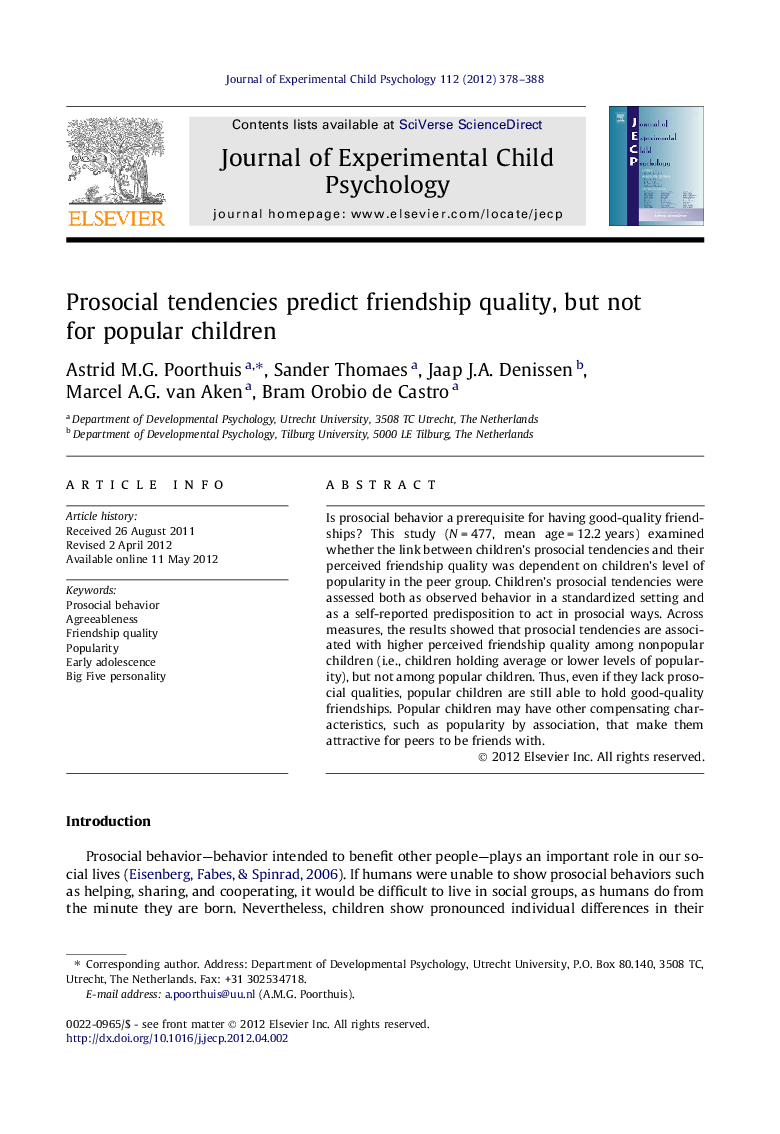| Article ID | Journal | Published Year | Pages | File Type |
|---|---|---|---|---|
| 918227 | Journal of Experimental Child Psychology | 2012 | 11 Pages |
Is prosocial behavior a prerequisite for having good-quality friendships? This study (N = 477, mean age = 12.2 years) examined whether the link between children’s prosocial tendencies and their perceived friendship quality was dependent on children’s level of popularity in the peer group. Children’s prosocial tendencies were assessed both as observed behavior in a standardized setting and as a self-reported predisposition to act in prosocial ways. Across measures, the results showed that prosocial tendencies are associated with higher perceived friendship quality among nonpopular children (i.e., children holding average or lower levels of popularity), but not among popular children. Thus, even if they lack prosocial qualities, popular children are still able to hold good-quality friendships. Popular children may have other compensating characteristics, such as popularity by association, that make them attractive for peers to be friends with.
► We examined the link between prosociality and friendship quality. ► Prosociality was assessed both as observed and self-reported behavior. ► Prosociality was related to friendship quality, but only among nonpopular children. ► Even if popular children are not prosocial, they can hold good quality friendships.
